Articles & Papers
-
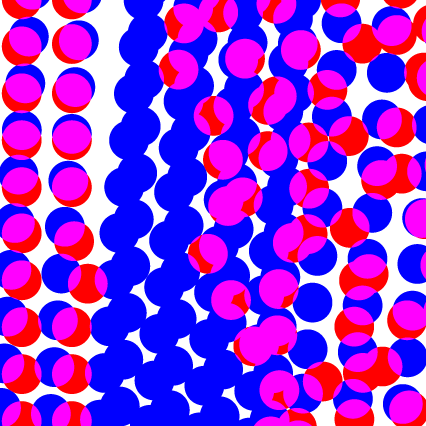 Being “in-tact” and well: metaphysical and phenomenological annotations on temporal well-being
Being “in-tact” and well: metaphysical and phenomenological annotations on temporal well-beingWell-being depends not only on what happens but also on when it happens. There are temporal aspects of well-being, and to a large extent those aspects are about relative timing—about being “in-tact.” On the one hand, there is a perspectival aspect about being in-tact with one’s past, present, and future or, in a less involved sense, with one’s life as a whole. On the other hand, there is a synchronization aspect of being in-tact; and this aspect occurs on different levels: It might be about the alignment between different temporal domains—such as time as individually perceived and physical or intersubjective time. Or it might be about a single domain, especially the inner dynamics of individual time. The danger of not experiencing and acknowledging the relational character of these different timings likely leads to a substantial loss in the variety of human experience. Important aspects of subjective and intersubjective experience might fade away. The present paper discusses these aspects of well-being along the lines of distinctions and concepts prominently used in the metaphysics and the phenomenology of time. Thus, the paper also aims to complement the existing literature by bringing together important strands of current philosophical research.
-
 Neues Wahrnehmen
Neues WahrnehmenManege für Architektur (Heft 2: Automationen). 36-37. https://mfa.one/manege-2/
-
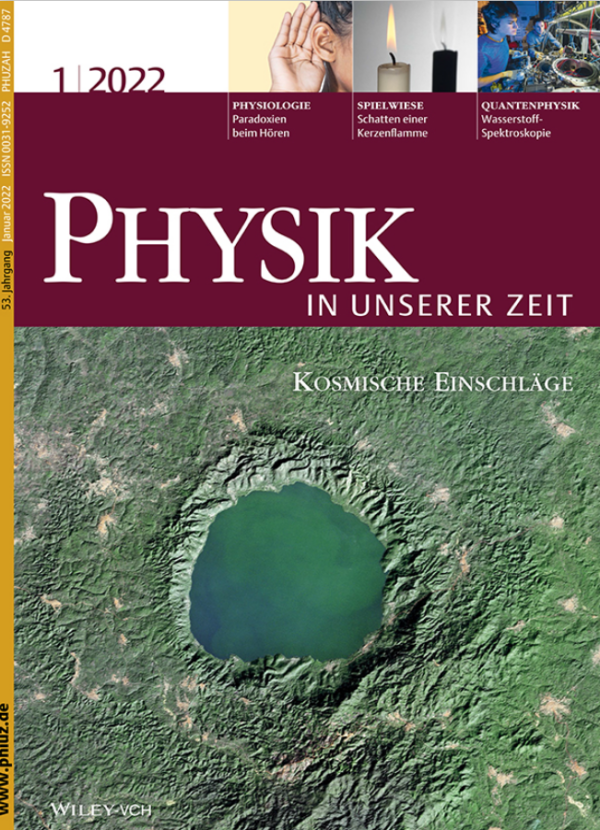 Paradoxien beim Hören
Paradoxien beim HörenDealing with auditory oddities and ambiguities is not only entertaining, it is also an important driver for basic auditory research. The same acoustic stimulus can actually be perceived in different ways. We not only hear “with our ears”, but various other physical, physiological and cultural factors also play an important role. This directly gives rise to broader philosophical questions, for example on perception – and the enduring appeal of pieces of music is also based in many places on such ambiguities [13].
-
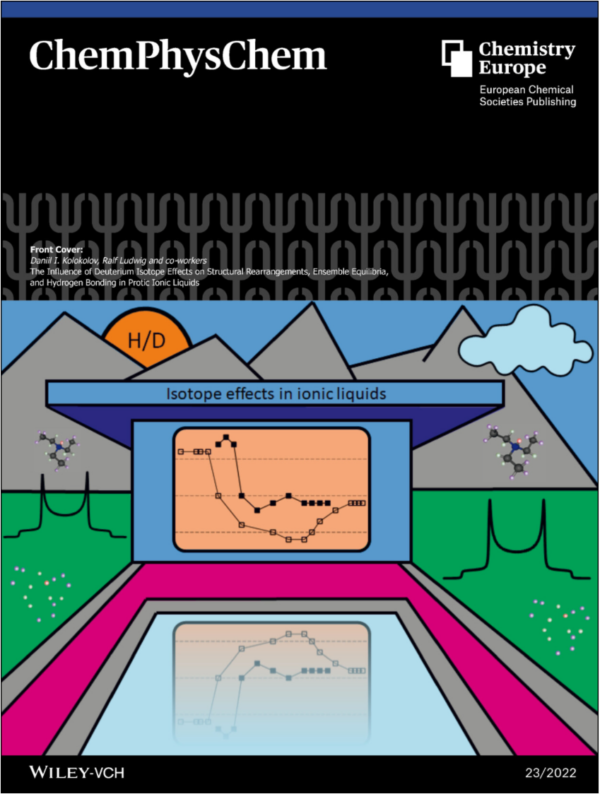 Can a Finite Chain of Hydrogen Cyanide Molecules Model a Crystal?
Can a Finite Chain of Hydrogen Cyanide Molecules Model a Crystal?When calculating structural or spectroscopic properties of molecular crystals, the question arises whether it is sufficient to simulate only a single molecule or a small molecular cluster or whether the simulation of the entire crystal is indispensable. In this work we juxtapose calculations on the high-pressure structural properties of the (periodic) HCN crystal and chains of HCN molecules of finite length. We find that, in most cases, the behavior of the crystal can be reproduced by computational methods simulating only around 15 molecules. The pressure-induced lengthening of the C−H bond in HCN found in calculations on both the periodic and finite material are explained in terms of orbital interaction. Our results pave the way for a more thorough understanding of high-pressure structural properties of materials and give incentives for the design of materials that expand under pressure. In addition, they shed light on the complementarity between calculations on periodic materials and systems of finite size.
-
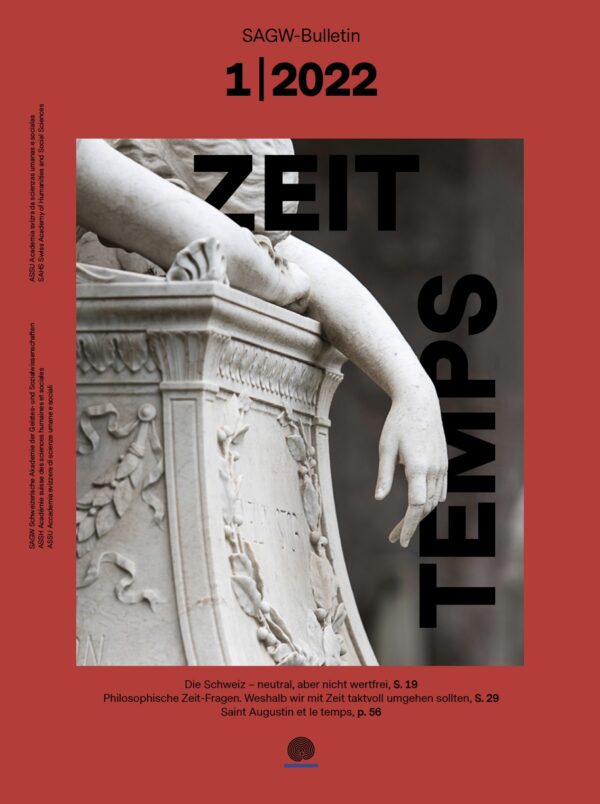 Philosophische Zeitfragen. Weshalb wir mit Zeit taktvoll umgehen sollten
Philosophische Zeitfragen. Weshalb wir mit Zeit taktvoll umgehen solltenZeit spielt eine grundlegende Rolle im menschlichen Leben. Zu bestimmen, was ihr Wesen ausmacht, ist bekanntermassen nicht einfach – und ist vielleicht auch nicht die philosophisch interessanteste Herausforderung. Wichtiger scheint es, verschiedene Lebensbereiche zunächst auf ihre unterschiedlichen Zeitauffassungen hin zu untersuchen und sich zu fragen, wie sie sich aufeinander beziehen. Für unseren Umgang mit Zeit ist das Entscheidende: Wie lassen sich Ereignisse sinn- und taktvoll aufeinander abstimmen?
-
 Ritual und Experiment – Versuch einer Annäherung an die Natur
Ritual und Experiment – Versuch einer Annäherung an die NaturThe relationship between man and nature is subject to constant change. While nature was long considered threatening and alien, the idea of man in harmony with nature developed in the 16th century. Another profound change in this relationship has been accompanied by industrialisation and rapid urbanisation since the 19th century. The relationship between humans and nature is becoming unbalanced and jeopardises the survival of many species, including humans, on this planet. The environmental debate that has been ongoing since the 1960s has only been able to change this to a limited extent. Rather, there seems to be a persistent inability – a ‘blind spot’ – to (re)establish and maintain socio-ecological relationships with our habitat. The urgent question arises as to how we can get closer to nature again and which strategies appear helpful for this.
-
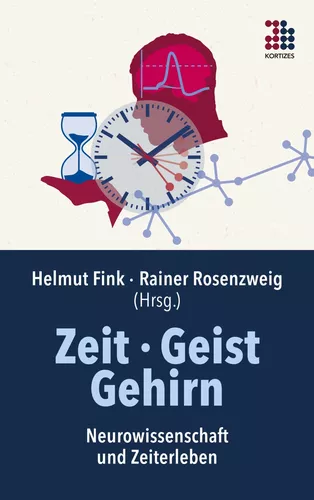 Zeitliche Vielfalt – Erscheinungsformen von Zeit und die Aufgabe der Philosophie
Zeitliche Vielfalt – Erscheinungsformen von Zeit und die Aufgabe der PhilosophieProceedings of the symposium Zeit · Geist · Gehirn. Neurowissenschaft und Zeiterleben 2021.
-
 Making a Theme Audible. Imparting Non-Discursive Knowledge in Natural Philosophy by Means of Poetry and Aphorism
Making a Theme Audible. Imparting Non-Discursive Knowledge in Natural Philosophy by Means of Poetry and AphorismThis paper is about poetry as a vehicle for imparting knowledge in natural philosophy. It discusses the epistemological and cultural background against which early Greek thinkers such as Parmenides and Empedocles composed in verse, and it explores the rationale why poetry was thought to be a preferred means for transmitting important and often non-discursive knowledge about nature—in other words, how poetry was meant to make “a philosophical theme audible,” to prompt an insight that organizes a large field of experience. Much later, related assumptions find a (last) heyday in Goethe’s attempt to write a Naturgedicht in the vein of Lucretius. Even though new insights especially from classical German philosophy influenced Goethe, his reasons for writing nature poetry show striking continuities with those of his ancient peers. The paper ends with a brief look at later attempts to “make philosophical themes audible” in the context of an ever-increasing fragmentation of knowledge.
-
 Paradoxien des Auditiven? Ambiguitäten und Diskrepanzen beim Hören und in der Musik
Paradoxien des Auditiven? Ambiguitäten und Diskrepanzen beim Hören und in der MusikIn the psychology of music and basic auditory research, there is talk of “paradoxes of hearing” or “musical paradoxies” (Deutsch 1986, 275-280; Utz 2015, 22-52; Deutsch 1995). But can auditory impressions really be paradoxical? What exactly should it mean what exactly should it mean to “hear paradoxes” or even to “hear paradoxically”? We will pursue this question in the following and in doing so, we will first define the concept of paradoxia for the present context – namely in the sense of ambiguity and discrepancy ambiguity and a discrepancy. We will then develop a typology, which at the same time shows the fundamental significance that ambiguities have for music – or more precisely: for the enduring appeal of pieces of music.
-
 Die Zeit in ihrer Vielfalt denken – Anmerkungen aus philosophischer Perspektive
Die Zeit in ihrer Vielfalt denken – Anmerkungen aus philosophischer PerspektiveCorona infections, childhood memories, presidential elections, avalanches: everything we experience and witness and all external events can be ordered in time – according to their succession. Time is therefore an ordering parameter, or dimension, of events. There is disagreement about what else time is on the “battlefield of eternal disputes” – as Kant once called philosophy (or more precisely: metaphysics): Is time relative or absolute? Is it continuous or discrete? Is it a substance in its own right or is it constituted by relationships between events?
-
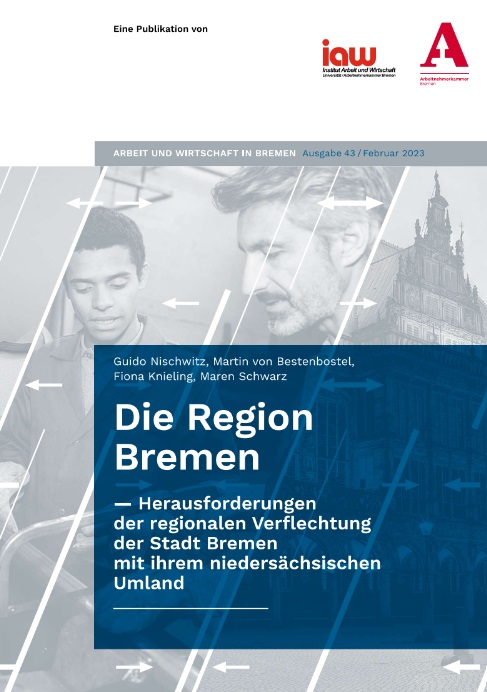 Die Region Bremen. Herausforderungen der regionalen Verflechtung der Stadt Bremen mit ihrem niedersächsischen Umland
Die Region Bremen. Herausforderungen der regionalen Verflechtung der Stadt Bremen mit ihrem niedersächsischen UmlandArbeit und Wirtschaft in Bremen (43).
-
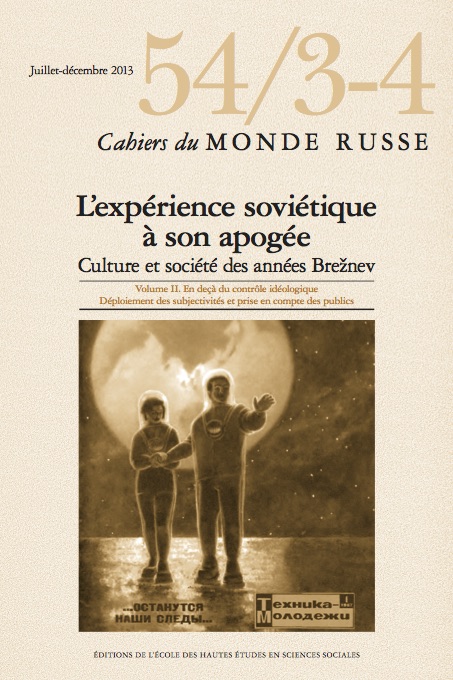 Les frontières du dicible. Du dialogue au silence: Les relations d’Andrej Saharov avec Hrušcev et Brežnev.
Les frontières du dicible. Du dialogue au silence: Les relations d’Andrej Saharov avec Hrušcev et Brežnev.This article describes the historical context that was decisive in Saharov’s commitment to warning party leaders of the dangers of the H-bomb and calling on them to respect human rights. He also attempts to explore the different ways in which Hruščev and Brežnev approached Saharov’s criticisms. Not only does he examine the three stages of the KGB model – educate, warn and only finally arrest renegades – he also sheds light on Andropov’s repeated appeals to Brežnev to speak with Saharov. Although Saharov, too, was keen to talk to Brežnev, the meeting between the two men never took place. In the end, it was against the backdrop of the Cold War that the Politbjuro decided on the best time to get rid of Saharov, doing as little damage as possible to the prestige of the Soviet Union, and thus re-establishing the limits of the dictable.
-
 „Sascha, ich würde Dir gern glauben, aber versteh auch Du mich …“. Breschnew, Dubček und die Frage von Kadern und Vertrauen im Konflikt um den Prager Frühling 1968
„Sascha, ich würde Dir gern glauben, aber versteh auch Du mich …“. Breschnew, Dubček und die Frage von Kadern und Vertrauen im Konflikt um den Prager Frühling 1968This article focuses on the question, which kind of diplomacy we have to deal with within the Warsaw pact states. Taking the invasion in Czechoslovakia in 1968 as an example, three theses are discussed: (1) Brezhnev transferred his inner-party concept of „trust in cadres“ and his „scenario of power“ based on trust to foreign politics and treated Dubček as a client whom he addressed in a patrimonial and familiar way. (2) He lost faith in Dubček when the latter established a new democratic discourse denying the central power of the party. (3) The diplomatic language within the Warsaw pact states referred more to socialist common values and party discipline than to the language and setting of international meetings with third party states.
-
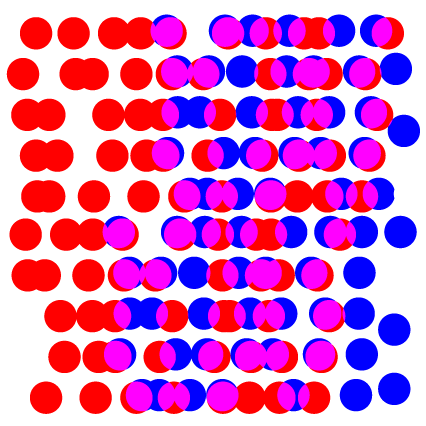 Natalja Gorbanewskaja. Graphic Novel
Natalja Gorbanewskaja. Graphic Novel“She was a poet as great as Joseph Brodsky and a human rights activist as fearless as Andrei Sakharov. Unlike Brodsky, however, she did not receive the Nobel Prize for Literature, and unlike Sakharov, she did not receive the Nobel Peace Prize. However, her name is associated with a unique event in the Soviet Union: On August 25, 1968, she and seven other young people came to Red Square to demonstrate openly against the regime – and against the suppression of the Prague Spring by tanks from the Soviet Union and other Warsaw Pact countries.”
-
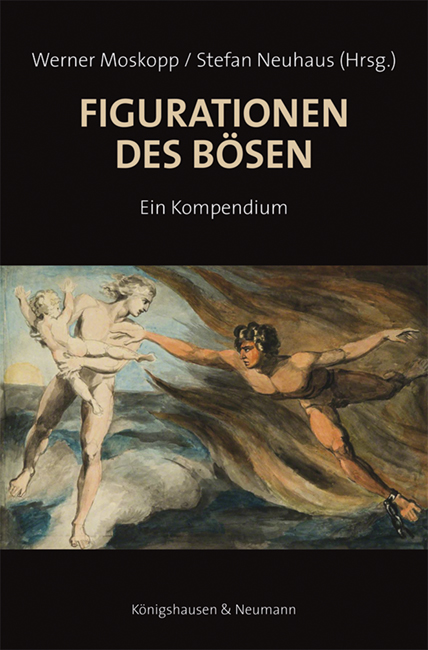 Hagen von Tronje: Vom Antagonist zum Bösewicht zum Antiheld. Überlegungen zur diachronen Entwicklung und Rezeption einer Antagonistenfigur
Hagen von Tronje: Vom Antagonist zum Bösewicht zum Antiheld. Überlegungen zur diachronen Entwicklung und Rezeption einer AntagonistenfigurIn Moskopp, Werner & Stefan Neuhaus (Hrsg.), Figurationen des Bösen. Ein Kompendium, 185-198. Würzburg: Königshausen & Neumann.
-
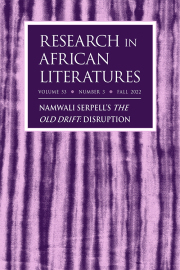 Introduction. Namwali Serpell’s The Old Drift: Disruption
Introduction. Namwali Serpell’s The Old Drift: DisruptionResearch in African Literatures 53(3). 1-22. https://www.muse.jhu.edu/article/900030
-
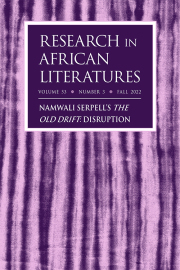 State of the Planet. Homi Bhabha and Namwali Serpell in Conversation
State of the Planet. Homi Bhabha and Namwali Serpell in ConversationAfter explaining the rationale for bringing the author of The Old Drift, Namwali Serpell, and critical theorist Homi Bhabha into conversation, this interview with both of them explores some of the key themes of Serpell’s novel in relation to its wider geopolitical and historical context. Beginning with how we can understand the state of the planet in the present historical moment, the discussion expands to explore the broad context of more themes in the novel, which includes the place of gender and sexual politics, a global pandemic in a time of national and financial closures, cosmopolitanism, the space race and reverberations of the Cold War in the present, and the continued relevance, if any, of postcolonial theory, technology, revolution, and futurity.
-
 Agency and Incentives of Diasporic Political Influencers on Facebook Malawi
Agency and Incentives of Diasporic Political Influencers on Facebook MalawiThis article examines the agency and incentives that drive the activism of diasporic political influencers on “Facebook Malawi,” an online imagined political community. In their seminal work on “social media dissidents” and “social media self-made activists” in the Global South, Matsilele and Sharra demonstrate that social media activists engage with different strategies to initiate movements, mobilize citizens, and create their brands in strong opposition to authoritarian regimes which repositions them as freedom fighters in the eyes of the masses and enemies of the state. Correspondingly, we frame diasporic political influencers as actors aided by digital technologies who engage in “long-distance nationalism” on Facebook against authoritarianism in the homeland. We deploy a qualitative mixed methods approach to analyze Facebook data of two diasporic political influencers, Onjezani Kenani and Manes Winnie Hale, who gave informed consent to use their Facebook data generated in 2018 and 2021, a period preceding and following the 2019 Malawi tripartite elections. A thematic analysis of 250 Facebook posts and interview data with the two influencers illustrates how they exercise their agency in their quest for a vision of a better Malawi while navigating a complex and ambivalent web of online and offline threats, incentives, and interests. Implicated in the political communication and mobilization of the two are different strategies that include verbal inventiveness, trolling, and exposing. The article also shows how the concept of long-distance nationalism needs to be adapted in studying diasporic political influencers.
-
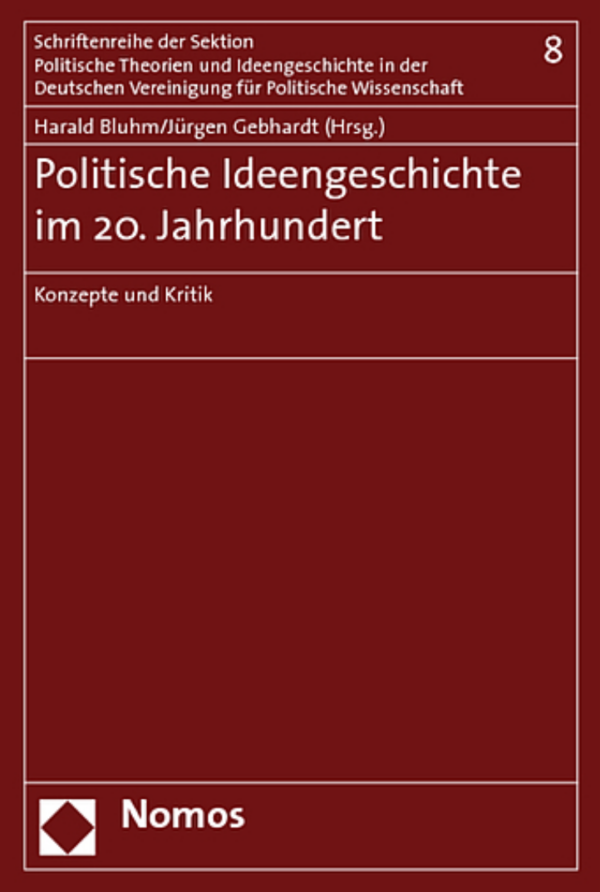 Politische Ideengeschichte und politische Hegemonie. Anmerkungen zum ‚Battle of the Books‘ an den amerikanischen Colleges
Politische Ideengeschichte und politische Hegemonie. Anmerkungen zum ‚Battle of the Books‘ an den amerikanischen CollegesIn Bluhm, Harald & Jürgen Gebhardt (eds.) Politische Ideengeschichte im 20. Jahrhundert, 223–242. Baden-Baden: Nomos. ISBN: 978-3-8329-2181-1
-
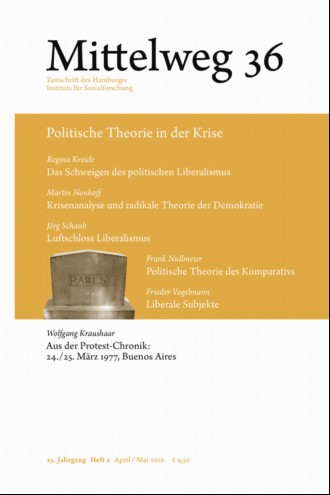 Krisenanalyse und radikale Theorie der Demokratie.
Krisenanalyse und radikale Theorie der Demokratie.Mittelweg 36. Zeitschrift des Hamburger Instituts für Sozialforschung 2(2016) ISBN: 978-3-86854-736-8